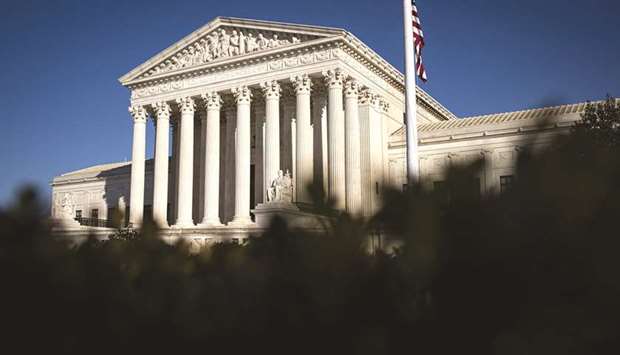The US Supreme Court has agreed to hear suits alleging that race-conscious admissions policies at Harvard and the University of North Carolina are discriminatory against Asian American students.
In the US, the term “Asian American” generally refer to those of East Asian descent.
The case takes aim at decades-old affirmative action policies designed to increase African American enrolment in higher education and promote a more diverse student body.
The nation’s highest court has previously upheld the policies, as recently as 2016.
However, six of the nine current justices are now conservative-leaning, including three nominated by former president Donald Trump.
A US District Court judge rejected claims in January 2019 that Harvard University discriminates against Asian American applicants.
The case was filed in 2014 by Students for Fair Admissions, a group led by conservative white activist Edward Blum, who had previously targeted the affirmative action policies at the University of Texas.
Lawyers for the plaintiffs argued that Harvard had used personality criteria to favour black, Hispanic and white applicants over Asian students with similar grades.
They argued that if admissions were based just on grades, then more Asian students would be admitted to Harvard, a prestigious Ivy League university in Cambridge, Massachusetts.
Harvard denied discriminating against Asians but defended its use of broader selection criteria than academic excellence, such as personality, when considering who to admit.
Federal Judge Allison Dale Burroughs said that while Harvard’s admissions process is not perfect, it was right – for now – to factor in race to form a diverse student body.
“The rich diversity at Harvard and other colleges and universities and the benefits that flow from that diversity will foster the tolerance, acceptance and understanding that will ultimately make race-conscious admissions obsolete,” the judge said.
Students for Fair Admissions challenged the ruling in the Harvard case, which was upheld on appeal, and also brought suit against the University of North Carolina.
Lower courts have also sided with North Carolina, a highly selective public university which did not admit African American students until the 1950s.
The Supreme Court agreed to consolidate the Harvard and North Carolina cases and will likely hear oral arguments this fall.
Blum praised the Supreme Court’s decision to hear the matter.
“In a multi-racial, multi-ethnic nation like ours, the college admissions bar cannot be raised for some races and ethnic groups but lowered for others,” he said. “Our nation cannot remedy past discrimination and racial preferences with new discrimination and different racial preferences.”
The Trump administration backed the challenge to Harvard’s use of race in determining admissions, but the Justice Department under Democratic President Joe Biden has sided with the universities.
The affirmative action suit is the latest high-profile case to come before the court, which has already agreed to address gun rights, abortion and coronavirus (Covid-19) vaccination mandates.
The justices are already set to rule by the end of June in blockbuster challenges to abortion rights and gun control.

(File photo) The US Supreme Court.
